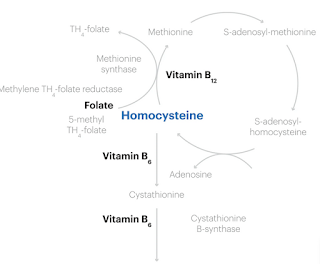Preserving Cognitive Function: A Guide to Supplement Combinations
As we age, maintaining cognitive function becomes increasingly important for overall health and quality of life. While lifestyle factors such as diet, exercise, and mental stimulation play key roles in brain health, certain supplement combinations have shown promise in supporting cognitive function and reducing the risk of cognitive decline. In this article, we explore a combination of supplements that may help preserve cognitive function as we age Elysium Matter.
Omega-3 Fatty Acids
Omega-3 fatty acids, particularly EPA (eicosapentaenoic acid) and DHA (docosahexaenoic acid), are essential nutrients known for their numerous health benefits, including brain health. These fatty acids are found in fatty fish such as salmon, mackerel, and sardines, as well as in fish oil supplements. Omega-3 fatty acids have been shown to support brain function by reducing inflammation, promoting neuroplasticity, and supporting the structure of cell membranes in the brain.
Phosphatidylserine (PS)
Phosphatidylserine is a phospholipid that is found in high concentrations in cell membranes, particularly in brain cells. It plays a crucial role in cell signaling, neurotransmitter release, and neuronal function. Supplementing with phosphatidylserine has been shown to improve cognitive function, memory, and attention, particularly in older adults. It may also help reduce the risk of age-related cognitive decline and neurodegenerative diseases such as Alzheimer's.
Bacopa Monnieri
Bacopa monnieri, also known as Brahmi, is an herb that has been used in traditional Ayurvedic medicine for centuries to enhance cognitive function and memory. It contains compounds called bacosides, which have been shown to support neurotransmitter function, improve cognitive performance, and reduce oxidative stress in the brain. Supplementing with Bacopa monnieri may help improve memory, focus, and cognitive flexibility.
Curcumin
Curcumin is the active compound found in turmeric, a spice commonly used in Indian cuisine. It has potent anti-inflammatory and antioxidant properties and has been studied for its potential neuroprotective effects. Curcumin has been shown to reduce inflammation in the brain, promote the production of brain-derived neurotrophic factor (BDNF), and improve cognitive function in older adults. Supplementing with curcumin may help support brain health and reduce the risk of cognitive decline.
Vitamin B Complex
The B vitamins, including B6, B12, and folic acid (B9), play important roles in brain health and cognitive function. They are involved in the synthesis of neurotransmitters, the production of energy in brain cells, and the maintenance of healthy brain tissue. Deficiencies in B vitamins have been linked to cognitive impairment and neurodegenerative diseases. Supplementing with a B-complex vitamin may help support cognitive function and reduce the risk of cognitive decline.
Conclusion
While there is no magic pill for preserving cognitive function, a combination of supplements that target different aspects of brain health may help support cognitive function and reduce the risk of cognitive decline as we age. Omega-3 fatty acids, phosphatidylserine, Bacopa monnieri, curcumin, and B-complex vitamins are just a few examples of supplements that have shown promise in supporting brain health and cognitive function. As always, it is important to consult with a healthcare professional before starting any new supplement regimen, especially if you have underlying health conditions or are taking medications. Additionally, supplements should be used in conjunction with a healthy lifestyle that includes regular exercise, a balanced diet, and mental stimulation for optimal brain health.




Comments
Post a Comment